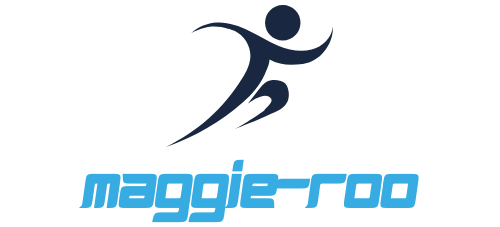Table of Contents
ToggleHiring the right candidate can make or break a team’s success. Crafting effective interview questions is crucial for uncovering a candidate’s true potential and fit within the company culture. The right questions not only help assess skills and experience but also reveal personality traits and problem-solving abilities.
Employers often struggle with what to ask during interviews, leading to missed opportunities for deeper insights. By focusing on targeted questions, hiring managers can create a more engaging dialogue that encourages candidates to share their stories and motivations. This article explores a variety of good interview questions designed to help employers make informed decisions and find the perfect match for their team.
Importance Of Asking Good Interview Questions
Asking good interview questions is crucial for identifying the right candidate for a position. Well-structured questions evaluate a candidate’s skills, experiences, and fit within the company culture. Targeted inquiries uncover personality traits and problem-solving abilities, providing insight into how the candidate approaches challenges.
Effective questions lead to engaging discussions, allowing candidates to articulate their motivations and unique experiences. This process encourages the exploration of a candidate’s past performance and future potential, which are key factors for long-term success in a role.
Challenges in formulating interview questions often stem from a lack of clarity about the role’s requirements. Employers face difficulty in distinguishing between candidates when questions do not align with the job’s demands. By asking specific and relevant questions, interviewers can foster a deeper understanding of a candidate’s qualifications and character.
Structured interviews, utilizing open-ended and behavioral questions, enhance an organization’s ability to assess candidates comprehensively. This method not only increases the likelihood of a successful hire but also promotes fairness and consistency in the interview process.
Categories Of Good Interview Questions

Employers can categorize effective interview questions into behavioral, situational, and technical questions to better assess candidates. Each category serves a unique purpose in evaluating different aspects of a candidate’s qualifications and fit for the role.
Behavioral Questions
Behavioral questions focus on a candidate’s past experiences and actions in specific situations. These questions often begin with phrases like “Tell me about a time when…” or “Give an example of…” They help interviewers gauge how a candidate has handled challenges, collaborated with others, or demonstrated leadership skills. For instance, asking, “Describe a time you faced a significant obstacle at work, and how you overcame it,” encourages candidates to share concrete examples of problem-solving and resilience.
Situational Questions
Situational questions present hypothetical scenarios that a candidate may encounter in the workplace. These questions allow interviewers to assess a candidate’s problem-solving skills and judgment in a controlled context. Examples include questions like, “What would you do if you were given a project with a tight deadline?” or “How would you handle a conflict with a colleague?” Responses to situational questions reveal a candidate’s critical thinking and adaptability to challenges that may arise in their role.
Technical Questions
Technical questions evaluate a candidate’s specific industry knowledge and expertise related to the job. These questions often require candidates to demonstrate their understanding of essential concepts, tools, or processes relevant to the position. For example, in a software engineering interview, a candidate might be asked, “Explain the difference between a stack and a queue,” or in a finance role, “How would you assess the financial health of a company?” Technical questions not only clarify a candidate’s knowledge base but also assess their ability to apply that knowledge in real-world scenarios.
Examples Of Good Interview Questions
Effective interview questions help reveal a candidate’s qualifications and suitability for a role. The following sections categorize valuable questions that interviewers can ask.
Questions About Experience
- Describe a significant challenge you faced in a previous role. What actions did you take?
- Share an example of a successful project you’ve managed. What was your specific contribution?
- Tell me about a time when you had to work under pressure. How did you handle it?
- Discuss your experience with team collaboration. How do you typically contribute?
- Explain how you dealt with a difficult coworker or supervisor. What was the outcome?
Questions About Skills
- What technical skills do you bring to this position that align with our needs?
- How do you prioritize tasks when managing multiple deadlines?
- Describe your proficiency with specific tools or software relevant to this role.
- In what ways have you developed your skills over the past year?
- Can you give an example of a situation where you utilized your problem-solving skills effectively?
Tips For Crafting Good Interview Questions
- Define the role’s requirements clearly: Prioritize clarity about the skills, experiences, and traits necessary for success in the position.
- Align questions with company values: Ensure that each question reflects the organization’s core values, promoting candidates who fit the company culture.
- Use open-ended questions: Favor questions that require candidates to elaborate on their answers, deepening the discussion.
- Incorporate behavioral questions: Ask about past experiences to glean insights into a candidate’s capabilities and problem-solving skills.
- Incorporate situational questions: Present hypothetical scenarios related to the job, assessing a candidate’s judgment and approach to challenges.
- Avoid leading questions: Phrase questions neutrally to allow candidates to express their views honestly without bias.
- Limit yes-or-no questions: Favor questions that encourage dialogue, which provides a better understanding of the candidate’s thought process.
- Encourage self-reflection: Ask candidates about their learning experiences and growth, revealing their capacity for improvement and adaptability.
- Tailor questions to the industry: Focus on inquiries relevant to the specific sector, ensuring alignment with technical skills and industry standards.
- Seek consistency: Utilize a structured format for questions across candidates to maintain fairness and facilitate reliable comparisons.
- Review and revise questions regularly: Continuously evaluate the effectiveness of questions based on candidate responses and outcomes to improve future interviews.
By following these tips, employers can craft thoughtful and effective interview questions that lead to better hiring decisions.
Crafting effective interview questions is crucial for identifying the right candidates who align with an organization’s goals. By focusing on behavioral situational and technical inquiries interviewers can gain valuable insights into a candidate’s past performance and future potential. This approach not only enhances the quality of the hiring process but also promotes fairness and consistency.
Employers who invest time in developing targeted questions will likely find it easier to engage candidates in meaningful conversations. Ultimately this leads to more informed hiring decisions that contribute to a team’s success and overall organizational growth. Prioritizing well-structured interviews can make all the difference in building a strong and capable workforce.








